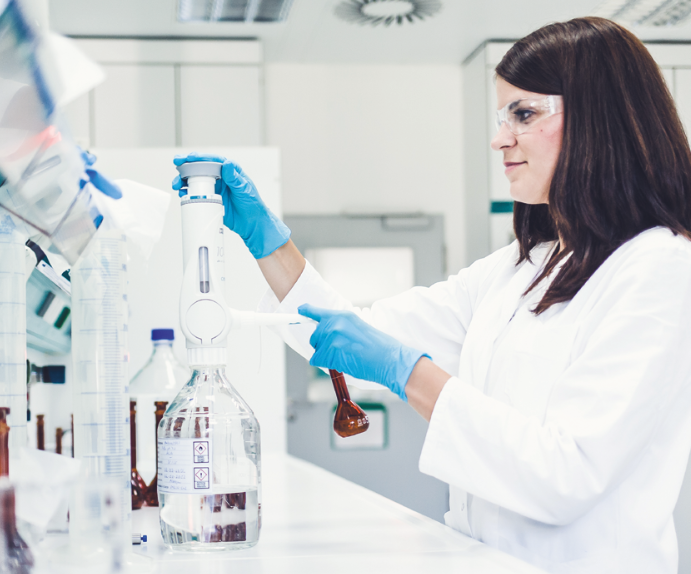- Bone Health
- Immunology
- Hematology
- Respiratory
- Dermatology
- Diabetes
- Gastroenterology
- Neurology
- Oncology
- Ophthalmology
- Rare Disease
- Rheumatology
Sandoz Panel Describes Issues, Opportunities for Biosimilars
Biosimilar education can increase physician motivation to prescribe these alternatives to costly originator products, panelists said in a Sandoz/Reuters discussion.
If biosimilar producers are looking to turn a corner in 2021, there’s hope as markets recover from the pandemic, according to panelists who reflected on barriers to uptake and opportunities to expand the use of these alternatives to costly originator biologics.
Employing lower-cost biosimilar medicines can enable health care institutions to recover financially from the revenue drains of the COVID-19 pandemic, the speakers said. In Europe as in the United States, there remains much room for biosimilar uptake, according to Rebecca Guntern, head of Europe operations for Sandoz.
Guntern joined many authorities from industry and patient advocacy groups in the recent Reuters/Sandoz conference on biosimilar use. They discussed biosimilar advancement in the United States, European Union, and Canada.
“If you compare the Nordic countries where we see biosimilar adoption rates of about 90% and move to Eastern Europe, such as Poland, where less than 1% of the population has access to biologics, this is the gap we really need to close to ensure equality of access to health care; so biosimilars, in a nutshell, if we can unlock them, can really contribute to accelerate recovery,” Guntern said.
This can be accomplished in part by a program of education that targets everybody from prescribers to policy makers to patients, she said. “They really need to understand the benefit and the value of biosimilars."
“It’s a good time to point out that there’s a collective clinical and cost benefit to biosimilars in the US market and partner with health care institutions to really bring them to market faster,” said Robert Spina, vice president of Marketing and Market Access and Patient Services at Sandoz US.
Without good education on biosimilar use, physicians are not liable to be motivated to use them and they’re not going to be able to explain them to patients.
“They need to be convinced that these are a very good solution for their patients,” said Antonella Cardone, director of the European Cancer Patient Coalition.
In the European Union, where public health is often heavily subsidized, patients can be supportive of biosimilar use because they know that lowering the overall cost of health care means that access can be extended to more patients who need it, Cardone said. “We do believe one of the main potentials of biosimilars is to reduce disparities in access to biological cancer medicines and improve overall survival rates in Europe. For us, this is very, very important.”
Another driver could be incentives such as are employed in France, such as a “gain share model” in which institutions that use biosimilars will receive a share of the savings from the use of those agents, Guntern said.
A Treatment Backlog
The COVID-19 pandemic has left an “overhang” of untreated patients with cancers that have gone undetected, said panelist Murray Aitken, executive director of the IQVIA Institute for Human Data Science.
Having not received adequate care during the pandemic, many will present with more advanced disease and require an advancement directly to biologics in the first-line setting, Aitken said. “That represents an important opportunity for the biosimilars market.”
Adoption rates of 50% to 70% for biosimilars in immunology have been estimated in the European Union, but “in some countries the rate of adoption is extraordinarily high and in others it’s very low or nonexistent, said Pierre Bourdage, head of Global Biopharmaceuticals for Sandoz.
Often, this is partly due to a lack of central administration. For example, he said, hospitals have the advantage of being able to direct the use of medications by policy, but outside of those settings, “you’re really relying on the individual actions of health care practitioners directly with their patients.”
Beyond Europe, Canada is making good progress with biosimilars, Bourdage said. A native of Canada, Bourdage pointed to the success story of British Columbia, which instituted mandatory switching to biosimilars in May 2019 for patients with ankylosing spondylitis, rheumatoid arthritis, psoriatic arthritis, plaque psoriasis, and diabetes. The British Columbia public health system, PharmaCare, expects to save up to $80 million alone by 2024 by switching 6000 patients to biosimilar forms of adalimumab.
The US Biosimilar Story
The United States is not generally described as a biosimilar success story, but it is not to be dismissed, said Christine Simmon, senior vice president of Policy and Strategic Alliances for the Association for Accessible Medicines and executive director of the Biosimilars Council.
“The United States only came to the party in 2015 with the launch of Sandoz’ Zarxio, and so it stands to reason there’s a great deal of opportunity here,” she said.
There are at least 80 biosimilar candidates under review at the FDA, representing 45 reference biologics, Simmon said. “This could translate into US sales in excess of $80 billion by 2024 and, even more importantly, savings exceeding $100 billion in that same period of time, but it is dependent on some changes.”
Those changes, she said, would include more than getting biosimilars through the FDA review process and onto market. They include incentivizing provider adoption and payer promotion of biosimilar use. Beneficiaries in federal health coverage programs also need encouragement to use biosimilars, she said.
Political Will
What distinguishes the successful biosimilar adopters from the unsuccessful is invariably “political will,” said Arnold G. Vulto, PhD, a hospital pharmacist and founder of the health care/biopharmaceutical consultancy VuPEC. “What we see is that the wealthy countries in the western part of Europe are better organized and have a stronger political will than the countries in Eastern Europe, and in many Eastern European countries, the uptake of biosimilars and even the availability of biosimilars is a lot lower, and they pay the highest price. It’s unbelievable.”
In the European Union, where countries rely on “tender” systems that may grant virtual exclusivity of market to a single biosimilar producer, reforms are needed to raise these systems to the level of “innovative, smart, and sustainable procurement,” Guntern said. “We see many cases still where the winner takes all, which means there’s only 1 company at the end that is being selected to deliver the biosimilars, and I think we need head-to-head competition.”
Sustainable markets for biosimilars are the ones that encourage the awarding of tenders to multiple bidders, as opposed to single winners, said Aitken. “Those in many ways discourage players from wanting to bid for those tenders and therefore it actually reduces the amount of competition in that market, and that doesn’t help the health system that’s operating there. We think that sort of suboptimizes the contribution that biosimilar are able to make.”
For reading on Europe's first 15 years of biosimilars, click here.
Newsletter
Where clinical, regulatory, and economic perspectives converge—sign up for Center for Biosimilars® emails to get expert insights on emerging treatment paradigms, biosimilar policy, and real-world outcomes that shape patient care.


